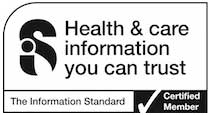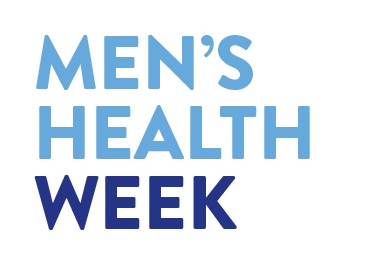The MHF is committed to fully participating in NHS England’s Information Standard Scheme for health and social care information. We intend to comply with all aspects and requirements of the Scheme Standard.
A list of sources for the Beat Stress, Feel Better man manual, published Sept 2014, follows:
What causes stress (page 6):
- http://www.nhs.uk/Livewell/mentalhealth/Pages/returning-to-work-mental-health.aspx
- http://www.nice.org.uk/nicemedia/live/12329/45896/45896.pdf
- http://www.nhs.uk/Conditions/Suicide/Pages/Causes.aspx
- http://www.ons.gov.uk/ons/dcp171778_295718.pdf
Work and stress (page 6):
- http://www.hse.gov.uk/statistics/dayslost.htm
- http://www.bbc.co.uk/news/business-16082186
- http://www.nhs.uk/Conditions/stress-anxiety-depression/Pages/workplace-stress.aspx
- http://www.ft.com/cms/s/0/46b6c682-fa94-11e2-a7aa-00144feabdc0.html
- Naish, J. Enough: Breaking free from the world of more. London: Hodder & Stoughton; 2008
- James, O. The Selfish Capitalist: Origins of affluenza. London: Vermilion; 2008
- http://www.acas.org.uk/media/pdf/m/p/Right-to-apply-for-flexible-working-a-short-guide.pdf
Drink and drugs (page 10):
- The US National Institute of Health holds this opinion. The NIH frequently takes a position which isn’t founded on solid science. See below for scepticism on such unfounded positions. See NIH website here http://www.ncbi.nlm.nih.gov/books/NBK64178/
- A 1997 paper holds that the science seems to point to substance induced mood disorders though strikes a balance by stating that “Current beliefs and diagnostic conventions classify drug-induced depression into a distinct category (Substance-Induced Mood Disorder): but this approach is not specifically supported by the existing literature.” Paper is Patten SB, Love EJ, (1997) “Drug Induced Depression” Psychotherapy and Psychosomatics. Web address http://www.ncbi.nlm.nih.gov/pubmed/9097332
- http://ash.org.uk/files/documents/ASH_120.pdf
SAD (page 8):
Loneliness (page 12):
- http://www.mentalhealth.org.uk/our-news/news-archive/2010/2010-05-02/
- http://www.mentalhealth.org.uk/content/assets/PDF/publications/the_lonely_society_report.pdf?view=Standard
- http://www.gnc.gu.se/digitalAssets/1348/1348516_altered-stress-responses-in-children---stress-nov-2011.pdf
Triggers and spotting a spiral (page 14):
- http://www.ncbi.nlm.nih.gov/pmc/articles/PMC2795557/
- http://developingchild.harvard.edu/resources/multimedia/interactive_features/gene-expression/
- http://www.mind.org.uk/mental_health_a-z/7979_how_to_cope_with_the_early_signs_of_mental_health_problems
- www.nimh.nih.gov/health/publications/bipolar-disorder/index.shtml
- http://www.nhs.uk/Search/Pages/Results.aspx?___JSSniffer=true&q=mood+swings
Anger (page 15):
Are you addicted? (page 16):
- http://www.who.int/substance_abuse/terminology/definition1/en/
- There are two definitions of addiction. One is a physiological disease such as alcoholism and the other is a habit with only psychological dependency such as cannabis.
- http://www.cdc.gov/alcohol/faqs.htm
- WHO Alcohol, Smoking and Substance Involvement Screening Test (ASSIST) (2010). Page 9 on the PDF http://whqlibdoc.who.int/publications/2010/9789241599382_eng.pdf
- Comorbidity between mental health issues and substance use is a major international field of research. As such this comment can be referenced at a high level anywhere. See I Crome “The relationship between dual diagnosis: substance misuse and dealing with mental health issues.” (2009) SCIE. Download as PDF and see Page 2 here http://www.scie.org.uk/publications/briefings/files/briefing30.pdf
- World Health Organisation “Self Help Strategies for cutting down or stopping substance use” (2010) download PDF here http://whqlibdoc.who.int/publications/2010/9789241599405_eng.pdf
Eating (page 17):
- Leyes – Wallace, R, (2013) “Nutrition and Mental Health”, Taylor and Francis Google Books preview can be found here http://books.google.co.uk/books?hl=en&lr=&id=B9KrxydnZ_cC&oi=fnd&pg=PP1&dq=nutrition+and+mental+health&ots=4Hpx5w6WqQ&sig=kuUp7bL2DwO0EIw65vxT-CcU-JI#v=onepage&q=nutrition%20and%20mental%20health&f=false
- http://www.mind.org.uk/information-support/tips-for-everyday-living/food-and-mood/#.UoY5TJGddwo
- http://www.mind.org.uk/mental_health_a-z/7990_body_dysmorphic_disorder
Exercise (page 18):
- Zschucke, E, Gauldlitz, K, Strohle, A, (2013) “Exercise and Physical Activity in Mental Disordeers: Clinical and Experimental Evidence” J Prev Med Public Health See link http://synapse.koreamed.org/search.php?where=aview&id=10.3961/jpmph.2013.46.S.S12&code=0056JPMPH&vmode=FULL
- Raichlen D et al (2011) “Wired to run: exercise-induced endocannabinoid signaling in humans and cursorial mammals with implications for the ‘runner’s high’” Journal of Experimental Biology See link here http://jeb.biologists.org/content/215/8/1331.short
- Boecker H et al (2008) “The Runner's High: Opioidergic Mechanisms in the Human Brain” Oxford Journal of Neuroscience. See link http://cercor.oxfordjournals.org/content/18/11/2523.full
Sing, dance and laugh (page 19):
- http://www.telegraph.co.uk/health/10168914/All-together-now-singing-is-good-for-your-body-and-soul.html
- http://news.bbc.co.uk/1/hi/health/3551063.stm
- http://www.sciencedaily.com/releases/2010/04/100426113058.htm
Talk (page 20)
- http://www.newyorker.com/online/blogs/elements/2013/09/the-real-reason-facebook-makes-us-unhappy.html
- http://www.plosone.org/article/info%3Adoi%2F10.1371%2Fjournal.pone.0069841
Write (page 22):
- http://www.mentalhealth.org.uk/help-information/mental-health-a-z/A/arts-therapies/
- http://www.chce.research.va.gov/docs/pdfs/pi_publications/Harris/2006_Harris.pdf
- http://www.yalepeplab.com/teaching/psych131_summer2013/documents/Lecture19_Pennebaker1997_Writingemotionalexperiences.pdf
Mindfulness (page 19):
- http://s3.amazonaws.com/academia.edu.documents/30863901/MBSRMAJPR2004.pdf?AWSAccessKeyId=AKIAIR6FSIMDFXPEERSA&Expires=1381592969&Signature=%2B1xX8wpamdHytypG7BNQMrVdx8Q%3D&response-content-disposition=inline
- http://www.radboudcentrumvoormindfulness.nl/media/Artikelen/Piet2011.pdf
- https://webspace.utexas.edu/neffk/pubs/mindfulnessmetaanlysis.pdf
- http://campbellcollaboration.org/lib/project/117/
- http://bemindful.co.uk/mbct/mbct-evidence/
- http://www.bangor.ac.uk/mindfulness/about.php.en
- http://mindfulnessteachersuk.org.uk/pdf/MBCTImplementationResources.pdf page 13
- http://www.nice.org.uk/nicemedia/pdf/CG90NICEguideline.pdf
Do what you enjoy (page 21):
Volunteer (page 21):
- Fegan, C and Cook S (2012) Experience of volunteering: a partnership between service users and a mental health service in the UK. IOS Press. Link http://iospress.metapress.com/content/j432316n54215252/
Learn (page 21):
- Westwood J (2003) The Impact of adult education for mental health service users, The British Journal of Occupational Therapy. See link http://www.ingentaconnect.com/content/cot/bjot/2003/00000066/00000011/art00003
Sleep (page 22):
Talking Therapies (page 23):
- http://www.mentalhealth.org.uk/content/assets/PDF/publications/need_2_know_peer_support1.pdf?view=Standard
- http://www.nhs.uk/Conditions/Cognitive-behavioural-therapy/Pages/Introduction.aspx
- http://www.nice.org.uk/media/878/f7/cbtcommissioningguide.pdf
- http://www.nhs.uk/Conditions/Counselling/Pages/Talking-therapies.aspx
- http://www.nhs.uk/Conditions/Psychotherapy/Pages/Introduction.aspx
- http://apt.rcpsych.org/content/15/3/199.full
Medication (page 24):
- http://www.mind.org.uk/news-campaigns/news/landmark-moment-as-antidepressant-prescriptions-top-50-million/
- https://catalogue.ic.nhs.uk/publications/prescribing/primary/pres-disp-com-eng-2002-12/pres-disp-com-eng-2002-12-rep.pdf
- http://www.mentalhealth.org.uk/help-information/mental-health-a-z/M/medication/
- http://www.nyitnikek.hu/upload/File/FournierJAMA2010.pdf
Schizophrenia (page 27):
Depression (page 28):
- http://www.patient.co.uk/health/depression-leaflet
- http://www.mentalhealth.org.uk/help-information/mental-health-statistics/common-mental-health-problems/?view=Standard
ADHD (page 29):
- DSM IV criteria for ADHD can be found on the Michigan State University website here https://www.msu.edu/course/cep/888/ADHD%20files/DSM-IV.htm
Photo credits
A list of photographic credits for Beat Stress, Feel Better follows:
Cover: Sol Searching by Casey Fleser (Creative Commons Licence: CC BY 2.0) (also used on page 25)
Page 5: Disappointed man - istock.com
Page 9: Love on sand - istock.com
Page 10: Beer Gut by bareknuckleyellow (CC BY 2.0)
Page 13: Angry? by Navaneeth KN (CC BY 2.0)
Page 15: Casio 3157 by Reg Natarajan (CC BY 2.0)
Page 17: Glass of Water - Wikimedia Commons public domain
Page 19: autopilot by Elliott P (CC BY-SA 2.0)
Page 23: Mouth Talking by Travis Rigel Lukas Hornung (CC BY 2.0)
Other images David McCairley and the Men’s Health Forum
The credits were correct as at October 2015.


